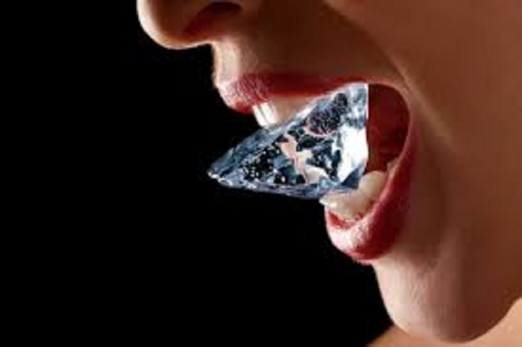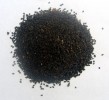Do you also eat ice

To escape the scorching sun and strong heat in summer , people drink various types of cold drinks. Sometimes people even chew ice to get instant relief from the heat. This provides relief from oral dryness and also helps in hydration. Although chewing ice occasionally is fine, but if there is a craving for it often, then it can be a sign of a particular health condition.
This is called 'pagophagia' in medical terms. This is a rare form of eating disorder, which is also called pica. This is a condition similar to the one where someone feels like eating chalk or mud. Pica is common in children and pregnant women, but it can happen to anyone.
According to a study published in the National Library of Medicine, pagophagia is usually associated with iron deficiency anemia or some mental problem. In such a situation, ignoring it can be dangerous.
Is it safe to eat ice?
Chewing ice occasionally in the summer season is generally considered safe. It helps keep the body hydrated. Adding a small amount of ice cubes to a cold drink and sucking it can be refreshing. However, chewing ice often damages the enamel of the teeth. If someone often craves to eat ice, then a doctor should be consulted as it can be a sign of a serious health problem.
Why do we crave to eat ice?
Ice craving can happen due to many reasons. According to a study published in the online database 'Science Direct', some people may crave to eat ice when there is a lack of iron in the body. However, it is not yet completely clear why this happens. During pregnancy, periods and breastfeeding, the risk of iron deficiency increases in women, due to which they may crave to eat ice.
Some people eat ice to reduce stress. It gives them relief. Apart from this, there can be a desire to eat ice even when there is a lack of water in the body.
: What kind of health problems can eating too much ice cause?
Answer- It depends on how often you eat ice and what is the reason for it. Although eating a small amount of ice is usually not dangerous. But eating too much ice can damage the enamel of the teeth and cause sensitivity. Apart from this, the risk of many other problems increases.
Digestive problems
Eating too much ice can cause the stomach temperature to drop suddenly. In such a situation, people with weak digestion may feel mild pain or cramps. Apart from this, certain enzymes work in our body to digest food. Cold things can slow down the functioning of these enzymes a bit, due to which the digestion process can be temporarily affected.
dental or oral health issues
Ice is very hard and constant chewing can wear away the outer layer of the teeth, called enamel. This can cause small cracks in the teeth and they can also break. Due to weakened enamel, teeth can become more sensitive to cold or hot things. Apart from this, jaw pain can also occur.
nutritional deficiencies
Ice has no nutrition except water. In such a situation, eating too much ice can lead to deficiency of nutrients in the body.
Problems Associated with Pagophagia
Ice is less likely to directly cause damage to internal organs. But people with pagophagia may also consume other non-food items, which can cause infection. In some cases, pagophagia may be associated with mental conditions such as stress, anxiety, or obsessive-compulsive disorder (OCD).
Problems Related to Anemia
If ice craving is due to anemia and it is not treated, then anemia related problems can occur. Such as-
- You may feel tired and weak.
- The risk of infection increases in children.
- There may be hindrance in the physical and mental growth of children.
- Heart related problems may occur.
- There can be danger to both mother and child during pregnancy.
Is eating ice cream also harmful for health?
Some people like to eat ice-cream every day in summer. It definitely gives a feeling of freshness for some time. But in the long run it can be harmful. Actually, to make ice-cream, flavored sugar syrup is added to it, which can have a bad effect on health. Therefore, flavored ice should be eaten in limited quantity. This can increase weight and blood sugar level.
How is ice craving detected?
To find out the real cause of ice craving, doctors usually do a blood test along with a physical test. If any deficiency is found in the blood test, then its treatment can help in reducing ice craving. On the other hand, if the blood test report is normal, then the doctor can consider other possible causes of ice craving such as psychological factors.
How is ice craving treated?
The treatment of ice craving depends on its cause. If it is due to iron deficiency anemia, then doctors usually recommend taking iron supplements. Similarly, for the deficiency of other nutrients, the doctor may recommend taking supplements for that.
If ice cravings are related to a mental condition such as stress, anxiety or obsessive-compulsive disorder (OCD), then cognitive behavioral therapy (CBT) can be helpful. If ice cravings are due to pica, then psychotherapy or CBT is given for it. On the other hand, ice cravings during pregnancy often get cured on their own after delivery.
How can one avoid ice craving?
Dr. says that for this it is important to keep some things in mind. Such as-
- Identify and avoid triggers by noticing when and why you feel cravings.
- If chewing ice has become a habit then try to reduce it.
- Keep drinking adequate amounts of water so that the body does not get dehydrated.
- Consume iron and vitamin C rich foods.
- Manage stress and anxiety.
- Get enough sleep and exercise regularly.
- Get regular check-ups from your doctor during pregnancy.
Is eating ice cream also harmful for health?
Some people like to eat ice-cream every day in summer. It definitely gives a feeling of freshness for some time. But in the long run it can be harmful. Actually, to make ice-cream, flavored sugar syrup is added to it, which can have a bad effect on health. Therefore, flavored ice should be eaten in limited quantity. This can increase weight and blood sugar level.
How is ice craving detected?
To find out the real cause of ice craving, doctors usually do a blood test along with a physical test. If any deficiency is found in the blood test, then its treatment can help in reducing ice craving. On the other hand, if the blood test report is normal, then the doctor can consider other possible causes of ice craving such as psychological factors.
How is ice craving treated?
The treatment of ice craving depends on its cause. If it is due to iron deficiency anemia, then doctors usually recommend taking iron supplements. Similarly, for the deficiency of other nutrients, the doctor may recommend taking supplements for that.
If ice cravings are related to a mental condition such as stress, anxiety or obsessive-compulsive disorder (OCD), then cognitive behavioral therapy (CBT) can be helpful. If ice cravings are due to pica, then psychotherapy or CBT is given for it. On the other hand, ice cravings during pregnancy often get cured on their own after delivery.
How can one avoid ice craving?
Dr.says that for this it is important to keep some things in mind. Such as-
Is eating ice cream also harmful for health?
Some people like to eat ice-cream every day in summer. It definitely gives a feeling of freshness for some time. But in the long run it can be harmful. Actually, to make ice-cream, flavored sugar syrup is added to it, which can have a bad effect on health. Therefore, flavored ice should be eaten in limited quantity. This can increase weight and blood sugar level.
How is ice craving detected?
To find out the real cause of ice craving, doctors usually do a blood test along with a physical test. If any deficiency is found in the blood test, then its treatment can help in reducing ice craving. On the other hand, if the blood test report is normal, then the doctor can consider other possible causes of ice craving such as psychological factors.
How is ice craving treated?
The treatment of ice craving depends on its cause. If it is due to iron deficiency anemia, then doctors usually recommend taking iron supplements. Similarly, for the deficiency of other nutrients, the doctor may recommend taking supplements for that.
If ice cravings are related to a mental condition such as stress, anxiety or obsessive-compulsive disorder (OCD), then cognitive behavioral therapy (CBT) can be helpful. If ice cravings are due to pica, then psychotherapy or CBT is given for it. On the other hand, ice cravings during pregnancy often get cured on their own after delivery.
How can one avoid ice craving?
Dr. says that for this it is important to keep some things in mind. Such as-
- Identify and avoid triggers by noticing when and why you feel cravings.
- If chewing ice has become a habit then try to reduce it.
- Keep drinking adequate amounts of water so that the body does not get dehydrated.
- Consume iron and vitamin C rich foods.
- Manage stress and anxiety.
- Get enough sleep and exercise regularly.
- Get regular check-ups from your doctor during pregnancy.
- Identify and avoid triggers by noticing when and why you feel cravings.
- If chewing ice has become a habit then try to reduce it.
- Keep drinking adequate amounts of water so that the body does not get dehydrated.
- Consume iron and vitamin C rich foods.
- Manage stress and anxiety.
- Get enough sleep and exercise regularly.
- Get regular check-ups from your doctor during pregnancy.
Share this with your friends:
प्रत्येक महिला पुरुषभन्दा कमजोर छैनन् : कमला भासिन
 नरेश ज्ञवाली ►
भदौ २७, काठमाडौं। दक्षिण एसियामा लैङ्गिक समानता, शिक्षा, गरिबी निवारण, मानवअधिकार र शान्तिका...
नरेश ज्ञवाली ►
भदौ २७, काठमाडौं। दक्षिण एसियामा लैङ्गिक समानता, शिक्षा, गरिबी निवारण, मानवअधिकार र शान्तिका...
पुरुष कलमले पूर्ण नारीलाई लेख्न सक्दैन
 काठमाडौं। मान्छेहरू कडा भएर बोलेको भन्दा नरम भएर बोलेको मनपर्छ । खरा कुराभन्दा नरम, सरस र सलिल कुराहरू मनपर्छ । तर...
काठमाडौं। मान्छेहरू कडा भएर बोलेको भन्दा नरम भएर बोलेको मनपर्छ । खरा कुराभन्दा नरम, सरस र सलिल कुराहरू मनपर्छ । तर...
कालो तिलले कम्मर दुखेको र अनुहारमा भएको पोतोको उपचार गर्छ
 काठमाडौं । कालो तिल अथवा तिलबाट प्राप्त हुने बिऊ तेल उत्पादनको लागि प्रयोग गरिन्छ । अनुहारमा चायाँ, पोतो वा दाग,...
काठमाडौं । कालो तिल अथवा तिलबाट प्राप्त हुने बिऊ तेल उत्पादनको लागि प्रयोग गरिन्छ । अनुहारमा चायाँ, पोतो वा दाग,...
दुबईमा पहिलो पटक नेपाली कल्चरल पहिरनको फेसन शो सम्पन्न
 काठमाडौं। गत माघ २८ गते दुबईमा नेपाली कल्चरल पहिरनको फेसन शो पहिलो पटक फेसन फ्युजन २०१७ सम्पन्न भयो । एनआरएन...
काठमाडौं। गत माघ २८ गते दुबईमा नेपाली कल्चरल पहिरनको फेसन शो पहिलो पटक फेसन फ्युजन २०१७ सम्पन्न भयो । एनआरएन...
उमेर अनुसारको हुनुपर्छ खान्की, अनि मात्र मानिस स्वस्थ रहन्छ
 काठमाडौं। पोषणको आवश्यकता उमेरअनुसार परिवर्तन हुन्छ । उमेरको हरेक अवस्थामा स्वयंलाई स्वस्थ राख्न शरीरलाई...
काठमाडौं। पोषणको आवश्यकता उमेरअनुसार परिवर्तन हुन्छ । उमेरको हरेक अवस्थामा स्वयंलाई स्वस्थ राख्न शरीरलाई...
मुलुकका सम्मानित पदमा महिलाको उपस्थिति, सबैका लागि आशाको ढोका उघारे
 काठमाडौं। अहिले नेपालका तीनवटै अंगका प्रमुख महिला भएकाले नेपाली राजनीतिक क्षेत्रमा मात्र नभएर सामाजिक...
काठमाडौं। अहिले नेपालका तीनवटै अंगका प्रमुख महिला भएकाले नेपाली राजनीतिक क्षेत्रमा मात्र नभएर सामाजिक...
यी भोजन खाए छाला सुन्दर हुन्छ !
 काठमाडौं। स्ट्रबेरी : यो भिटामिन सीले भरपुर हुन्छ । भिटामन सीले छालालाई चाउरीबाट जोगाएर सधैं जवान राख्न मद्दत...
काठमाडौं। स्ट्रबेरी : यो भिटामिन सीले भरपुर हुन्छ । भिटामन सीले छालालाई चाउरीबाट जोगाएर सधैं जवान राख्न मद्दत...
लोग्नेमान्छेको जात केटी देखेपछि.....
 काठमाडौं । शान्ताको विवाह भएको पाँच वर्ष बितिसक्दा पनि छोराछोरी भएनन् बरु उनलाई एकाएक ब्लड क्यान्सर भयो । समयले...
काठमाडौं । शान्ताको विवाह भएको पाँच वर्ष बितिसक्दा पनि छोराछोरी भएनन् बरु उनलाई एकाएक ब्लड क्यान्सर भयो । समयले...
मनोसामाजिक समस्या के हो?
 साउन ११, काठमाडौं । मनोसामाजिक समस्या भन्नाले मन र समाज वीच हुने समस्या हो । यो जो कोही व्यक्तिलाई पनि हुन सक्छ ।...
साउन ११, काठमाडौं । मनोसामाजिक समस्या भन्नाले मन र समाज वीच हुने समस्या हो । यो जो कोही व्यक्तिलाई पनि हुन सक्छ ।...
महिलाको दोस्रो विवाहको कुरा सुन्दा पढेलेखेकैले अनुहार बिगार्छन्
 काठमाडौं। दोस्रो विवाहबारे मैले नसोचेको, नचाहेको होइन । तर, म मेरा आत्मीयसँग फेरि विवाह गर्नेबारे कुरा गर्छु,...
काठमाडौं। दोस्रो विवाहबारे मैले नसोचेको, नचाहेको होइन । तर, म मेरा आत्मीयसँग फेरि विवाह गर्नेबारे कुरा गर्छु,...










